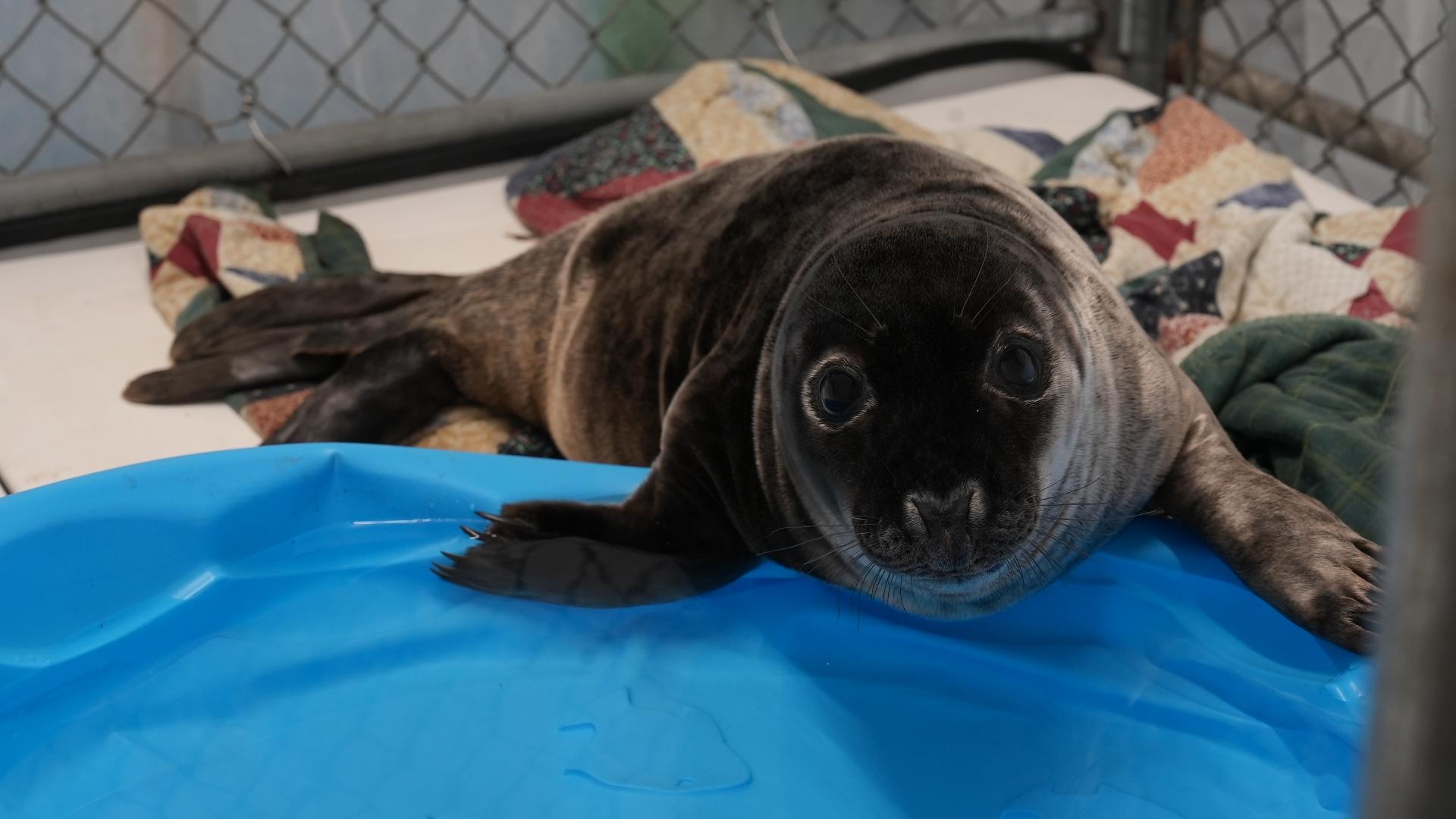BRUNSWICK, Maine — A Brunswick-based nonprofit has been working hard this winter and spring, rehabilitating some of Maine’s most photogenic visitors who are dealing with an evolving climate.
Marine Mammals of Maine Executive Director Lynda Doughty said they’ve already released 14 seals back into the wild, the same number of seals they returned in all of 2023.
Doughty said their normal busy pup season hasn't even started yet, and expects as many as 16 pups—the max they're allowed to house—to be in the facility around Memorial Day.
As harp seals, in particular, travel south from waters off of Newfoundland and Greenland to finish their winter in the Gulf of Maine. The young seals don’t expect to find warm temperatures and lack of snow and ice. They’ve had little fresh water to drink, as a result, causing dehydration in many of the nonprofit’s patients.
Some, Doughty said, came to them with stomachs filled with sand—their instincts mistaking the beach for the snowpack that should be there.
"When we have lack of snow and lack of ice, when we see these individuals, they rely on that for hydration and, just, health purposes," Doughty explained. "When they haul out onto our shores, we get a little nervous when we have milder winters."
Dominique Walk is the assistant stranding coordinator.
"To see what it looks like when an animal is severely dehydrated, it’s tough to see and it can be tough to turn around," she said.
Despite the high rescue numbers and now pups expected soon, Monday was a good day.
There was one patient remaining in the facility after a busy April: a three-to-four-month-old gray seal, simply named "#28."
When they brought him in, Walk said, #28 could barely eat a fish placed directly in front of him. On Monday, he swam in the largest pool he had been in since his arrival and chased down each of the handful of fish that Walk tossed in for him.
"He’s really starting to show the traits that he needs to have in order to have to be considered for release," she said, then smiled and rolled her eyes. "He's just a handful."
"When you do get to release one, that means a lot," Walk added. "And it has to mean a lot, because it’s going to make up for all of the ones that you were here all night trying to help."
It was a day they looked forward to in caring for one more patient—while remaining ready to help others.

